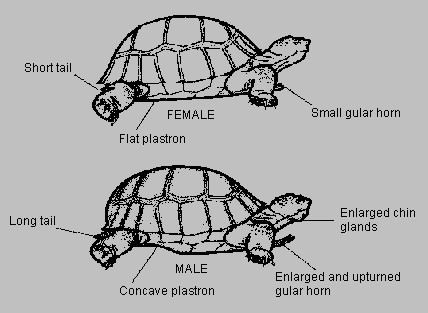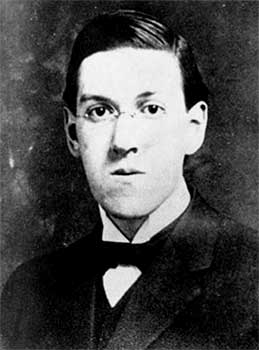Here is another much-requested piece. Although I have read it, more than once, on the radio, it has never appeared in written form anywhere. I was planning an anthology of stories in 1993, just before the Wilderness Years, of which this would have formed a part, but that book never did see the light of day. As with The Book Of Gnats, if I were writing the story today it would be different, here and there, but I have left it in its original state, more or less.
Freakishly tall, draped in a soutane, my brain pounding, I found myself standing before a trench full of sludge. In each hand, I discovered I was holding a bucket of pungent goo. My feet were encased in sturdy plastic bootees and at least two pairs of socks. I squelched across the trench, each step expelling from the sludge noisome fumes that wafted in the air behind me, shimmering and stinking. After some minutes, I clambered on to the other side, and rested the buckets upon the ground. Sulphurous fires ablaze within my skull, I had made the crossing from LIFE into DEATH. Eternity was before me.
That was six weeks ago, and I have now prepared this preliminary report of my impressions. I do not doubt that as further aeons pass, what follows may appear naïve, churlish and inaccurate. I shall file a more detailed report in ten billion years or so, and it will be instructive for scholars to compare the two documents. I repeat: these are very much first impressions.
In marshalling my material, I have plunged the majority of my notes into the Chute Of Rack And Ruin, which is on the mezzanine floor of the larger of the Two Damp Buildings. First, because to include everything would make this report too long and unwieldy. Second, because I have come to enjoy the whirring and clanking noises emitted by the Chute when it is put into operation. It is my fondest hope that, however limited and fragmentary the material, my readers will nonetheless gain a useful insight into what awaits them after death.
So far I have discovered four pubs: The Butcher’s Vest, The Consumptive Stalinist, The Tenth Chaffinch, and The Smouldering Maw. To get into the latter, you must be in possession of a special ticket issued by the River Police, whose headquarters is in a small hut at the bottom of a flight of stone steps a few hundred yards north of the Moribund Dam. To get into the hut, however, you need a licence from the Buffed-Up Shield Committee, which meets only once every four thousand years. It is typical of my luck that it met just two days before I arrived here. From what I have heard, The Smouldering Maw has the very best drinks in the afterlife, and what’s more they are free. My friend Ringchock, who has been here for untold centuries, recommends a peculiar brew they serve called The Hoist. It is effervescent, curdled, of a startling lavender tinge, and after four pints you get to join Captain Snap’s Committee, of which more later.
I have been able to get in to the other three pubs mentioned, none of which has any restrictions on entry. The Butcher’s Vest is the only one worthy of repeated visits. Its landlord, a bat-eared titan whose name is unpronounceable, comes from the same village as me, although he lived there many centuries before I was born. We have had many little chats, although his speech is hard for me to follow, as he is toothless, and slobbers uncontrollably. The range of drinks is somewhat limited, but the landlord provides enticing snacks for his regular customers. Each of the tables has a bowl of boiling hot custard on it, into which one can dip a staggering selection of biscuits, crackers, buns, tarts and pastries. Often these are stale, but when moistened with sufficient custard they are quite palatable. The tables are rickety, though, so one must be careful to avoid spillages, which enrage the landlord to the point where his hair stands on end, his face turns purple, and he gets his cronies to hurl the offender into an open sewer which runs past the back door.
You may find it difficult to believe, but absolutely everyone here is dressed from head to foot in corduroy. When I made the crossing, you will recall I was wearing a soutane. I have no idea why. At Reception, however, I was ushered into a little cubicle and given a set of corduroy apparel to change into: hat, shirt, jerkin, underpants, pantaloons, socks and moccasins. The soutane was taken away and I have not seen it since. Later, when I was taken to my quarters, I discovered a wardrobe full of corduroy clothing.
Ah yes, my quarters. What is accommodation like on the other side of the grave? Well, pokey. The population is, of course, ever-increasing, so overcrowding is a seemingly insoluble problem. Contrary to popular belief, as far as I can remember, we do not have unlimited space. Those who have been here for an unimaginably long time can only dimly remember when they had a small room all to themselves.
I share my tiny cabin with seven others. Binns was a whaling captain. Al Aqbuz ran a luxury hotel. Rosemary and Lettice, who perished together in one of the earliest railway accidents, were distressed gentlewomen; they still are, come to that. Scrut was some sort of hill-peasant. Nugg, our longest-serving resident, appears to have been a caveman as far as any of us can tell. He smells astonishingly unpleasant. Min Toc Thing babbles endlessly about her glorious life in an imperial palace of the Orient, and treats the rest of us with contempt.
Thrown together with dead people whose lives were so different, it might be thought that the afterlife is one long round of fascinating conversations, broadened horizons, and limitless opportunity to compare ideas, feelings, throbs, pangs, perceptions and beliefs. Would that it were so! Unfortunately, language acquisition (and, indeed, any kind of mental development) simply does not happen here. Thus, Nugg is locked in his strange and distant world, goes out of his mind with confusion when he sees a wheel, for example, and spends most of his time grunting, hammering his fists on the floor, and defecating where the fancy takes him. Binns told me an uproarious story about how he once took Nugg with him to The Butcher’s Vest and forced eight pints of grut down the poor wretch’s throat. In the resulting mayhem, Nugg smashed the pub to smithereens before passing out quite happily in the sewer, where he spent the next year or so recovering.
The fact that we all wear virtually identical corduroy clothing also makes things difficult. You simply can’t tell whether the person lounging by the bus stop is a thirteenth century Mongolian warlord, a Victorian entomologist, the murdered heir to the throne of Finland, a milkman from Wivenhoe, an arch-druid, a CIA assassin, a Baltic potato farmer, one of Hannibal’s mahouts, Ethelred the Unready, or an ex-pope. The chances are that any attempt you make at light conversation will be doomed from the start through mutual unintelligibility, so after a while you don’t even bother to try. I have only been here for six weeks, and am already affected by this social lethargy.
Our cramped living conditions are intolerable, and it is not surprising that fights and squabbles are common. I try to spend most of my time out and about, going back home only to sleep. In my first week, I made inquiries about changing cabins, but to do so is apparently impossible. They have a massive ledger at Reception, and they pencil in your name against whatever accommodation is available, and that’s it, for ever and ever and ever.
I have been given a job at the dairy. We have thousands of cows, an efficient bottling plant, good refrigeration facilities, and a delivery system that runs like clockwork. Buttermilk is increasingly popular, and we also produce sour cream, cheeses, yoghurt, and very nice little cartons of whey. Of course, fresh milk forms the bulk of our production, and although we no longer do home deliveries, we make sure that the milk-kiosks are always fully stocked. After a month in the single cream department, I was promoted. I am now Captain Of The Churns, and I wear a special badge.
The spiritualists among you will be pleased to hear that this place is fairly riddled with ectoplasm. Viscous, refulgent, and shimmering, it hovers above the rooftops, curls in wisps in every room, darts hither and thither in the air wherever one cares to look. What purpose it serves is a mystery. There are scholars here, of course, and many of them are using Eternity to puzzle over this enigmatic substance. Books roll off the presses in frightening quantities. On a visit to the library last week, I noted the following titles, all of them published since my arrival: The Ectoplasmic Gazetteer; The Lustre Of Ectoplasm; Two Noddles On A Bight; Ectoplasmus – Essays In Hieratic Crumpling; Heaven’s Porridge; Ectoplasmic Phantasms; and Ectoplasm’s New Hub – An Ibarguengoitian Summary. Learned journals devoted to the subject are piled high in corridors and pavilions. Hot and hate-filled debates are broadcast on the radio, as two or more experts dispute each other’s theories, shouting their heads off and resorting to infantile bickering.
True fanatics spend months at a time in the Ectoplasm Park, near the railway sidings, where the gleaming substance has somehow been corralled and controlled, hanging low in the air above a large circle of verdant lawns. The visitor to the Park is literally enveloped in ectoplasm, breathing it in through every pore. What the effects are of such exposure I do not know, as I have yet to experience them. Needless to say, those who visit the Park come away with wildly different stories to tell. The letters columns of the ectoplasm journals are full of first-hand reports, the writers’ reactions varying from blinding ecstasy to stultifying boredom. I will not bother to reproduce any of this verbiage here. You will have time enough to read it when you are dead.
I have yet to meet Captain Snap, but stories about him are rife. Most of them seem to be about the various high-jinks and scamperies he got up to when he was alive. Ask about his role in the afterlife and there is an ominous, even terrified, silence. No one appears to know which cabin he lives in, if, indeed, he lives in a cabin at all. On a promontory by the Mud Wastes there stands an enormous, misshapen castle, like something out of a child’s nightmare. Some insist that Captain Snap inhabits it, surrounded by minions, but this seems unlikely. Every month there are charabanc outings to the castle, and the tourists, chosen by raffle-ticket, are able to roam all around it at will. Perhaps Captain Snap hides in the broom cupboard, or makes himself scarce, during these visits. Who knows?
Most people are only able to drink half a pint of The Hoist before passing out, so rigorous training is necessary if one aspires to join Captain Snap’s Committee. As with so much else here, the Committee’s function is a mystery. Opinions vary. There are those who accuse the Committee of regulating every aspect of the afterlife. Others say it is merely a drinking club. Binns swears blind that the members are able to return to earth, for short periods, as ghosts, but that for some reason they are only able to haunt desolate, winter-wracked seaside resorts. I am sure he is just making that up.
As with ectoplasm, so with grace. There is a vast amount of it here. When I was alive, I remember that Christians used to bang on about grace all the time, but I must admit I never worked out precisely what it was. From what I did gather, however, I can confidently say that, as with most aspects of the afterlife, they were very wide of the mark.
At Reception, they give you a large tub of grace and tell you to look after it very carefully, and not to open it until you get the word. Not that they are trusting. Being a curious sort, I tried to open my tub as soon as I got to my cabin, and discovered that it had a safety catch on the lid, a nasty little mechanism which snapped over my fingers and clamped them tight against the tub so that I howled in agony. Binns, chuckling at my naivety, sent me off to the Tub Inspectors, who freed my fingers, dabbed them with ointment, reset the catch, and gave me a ticking-off.
As for “the wordâ€, upon receipt of which I can open my tub, to date I have not met a single person who has ever been given it. Everybody has their pristine, unopened tub. Some people carry them around with them, although personally I find the pockets on our clothing are not roomy enough. You can buy little wicker baskets, into which the tubs fit quite snugly, and you see those quite often. But like most people, I keep my tub of grace in a tiny wooden locker in my cabin.
The postal system is charming. Rickshaws, stacked with packets and parcels, and pulled along by brightly-uniformed Prussians, career through the streets, if “street†is the correct word for the stinking, muddy channels which criss-cross our domain. For some reason you have to be a Prussian who died during the nineteenth century to get a job as a postal worker. This seems to me rather unfair, and were I not so happy at the dairy I would raise a stink about it. When I first learned about this closed-shop employment practice, I assumed that the Prussians got the jobs because, with their stereotypical passion for order, they ran a tight ship and kept stern bureaucratic control of so potentially chaotic a service. I soon discovered how wrong I was. The great thing about the postal system here is that it is entirely random. You can write a letter, tie up a parcel, shove a few nick-nacks into a packet, and deposit it in a postbox, and you simply never know who the recipient will be. If you waste your time carefully addressing your mail to a particular individual, you are summoned to the Post Office Headquarters and made to do an hour’s stamp-licking duty, while ferocious hounds bay at you from an adjoining room.
There is a big metal fence completely surrounding this place. It is electrified. I have spent long hours peering through its mesh of lethal wires, trying to see what lies beyond it, but all I can make out is an indistinct beige and mauve blur. A distant, mesmerising clamour is just about audible. Those who have tried to cross it have found themselves instantly surrounded by gangs of brutish myrmidons, whose golden helmets are burnished and gleaming. Merciless and inexplicable, they enwrap their captives in grey corduroy shrouds, intone a litany of awfulness and dread, and convey them at hideous speed to the mezzanine floor of the Big Damp Building, whence they are despatched, muffled, stricken and aghast, into the Chute Of Rack And Ruin. As it whirrs and clanks, they are forever swept away, they are swept away and gone.



 The Blattnerphone
The Blattnerphone